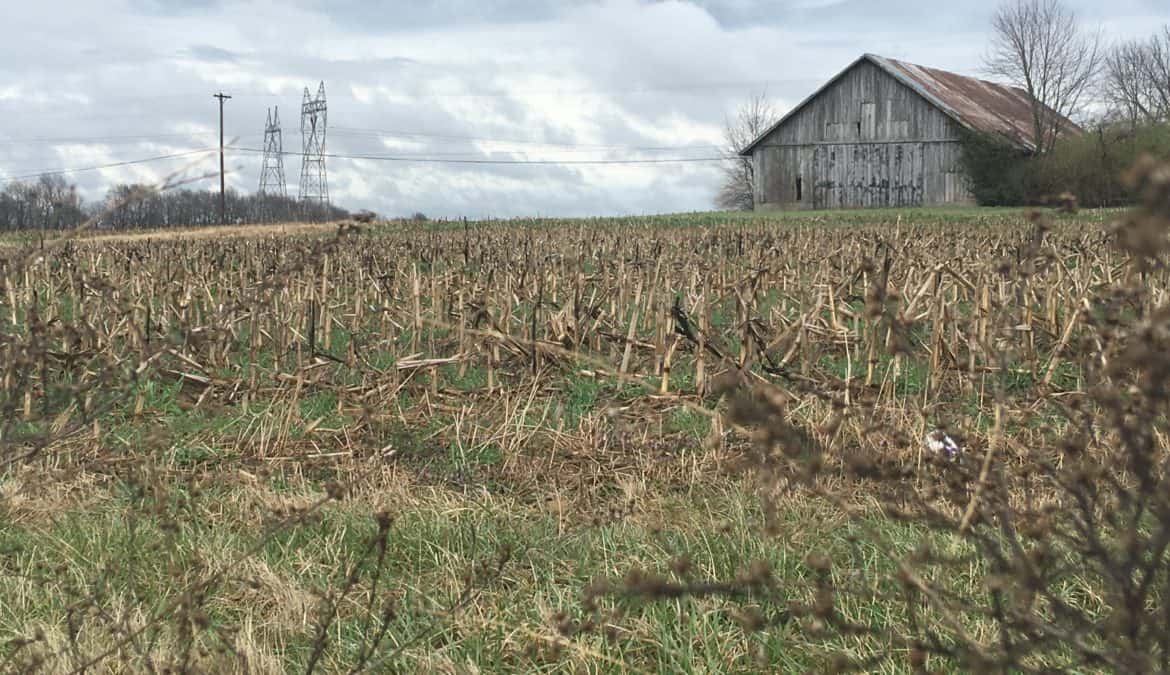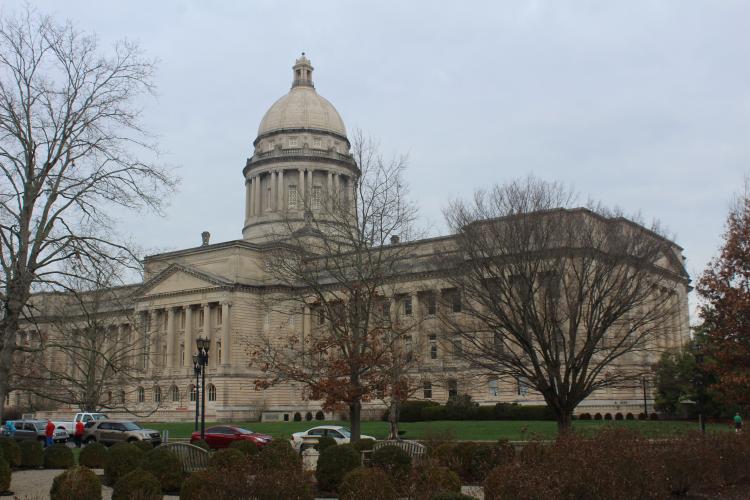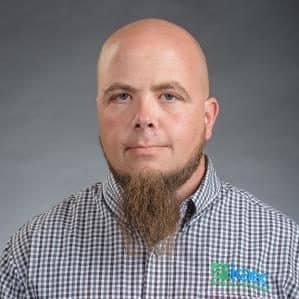The National Rural Electric Cooperative Association’s annual meeting began today in San Diego, CA. NRECA, the national service organization that represents the nation’s more than 900 not-for-profit, consumer-owned electric cooperatives, is celebrating its 75th anniversary during this year’s annual meeting. The national organization is reflecting upon the last 75 years as it looks back upon its legacy and surpassed challenges while also looking to the future and how NRECA can prepare for challenges still ahead.
NRECA CEO Jim Matheson’s opening remarks celebrate the electric cooperative spirit:
“…I’m proud to be part of this family. And I’m proud to be part of the same mission that drives everyone in this room. It’s an honor to stand on this stage for the first time as CEO.
I’d like to thank the team at NRECA that has worked so hard to make this meeting a celebration of our members. Please, help me give them a hand.
If you attended one of the regional meetings, you heard me talk about my journey to NRECA. About my appreciation for the difference you make – in politics, in the energy industry, and – most important – the difference you make back home in your communities.
And today I want to talk about the experience I’ve had so far – leading this organization – and my sense of our journey ahead.
It’s said that wisdom has a thousand fathers, and I‘ve had many teachers throughout the co-op community.
It goes without saying that the men and women who have provided me with counsel and encouragement have confirmed all the reasons I accepted this job.
NRECA is special because we benefit first and foremost from a membership that fosters this very real sense of community. We’re deeply invested in one another’s success. And that matters to me.
I mentioned the great team that put this meeting together. Did you know we support nearly a thousand meetings and events every year? All over the country, co-op leaders are gathering – to network, to share knowledge, and to talk about how they’re approaching the future.
I’ve seen how your informed perspective and your strong voices bring clarity to matters of policy and politics alike. Today, we’re communicating with a new Congress and a new Administration to act on our agreed-upon priorities. Together, we’re telling the world who we are and what we stand for.
I’ve sat down with NRECA’s engineers and scientists. I’ve dug into the many lines of our business that support you – consulting, marketing, financial services, insurance and benefits.
It sounds like a lot – and I can assure you this makes us unique among trade associations – but the common thread is that these are all things electric cooperatives decided to do together. We offer all these products and services because there is a special way to serve this community – through seven cooperative principles we hold in common.
And right now, so much is changing for our members. And NRECA has got to change right along with you.
 NRECA’s mandate comes directly from our membership. America’s electric cooperatives are not simply businesses; they are interested in their consumer members and they are directly invested in their communities.
NRECA’s mandate comes directly from our membership. America’s electric cooperatives are not simply businesses; they are interested in their consumer members and they are directly invested in their communities.
Taken one at a time, each co-op is uniquely situated to respond to the circumstances in the community it serves. But taken together, electric co-ops can define the terms of engagement for an entire industry. Together we constitute a movement. And NRECA is the national representative of that movement – a movement that now and forever belongs to its members.
It’s always important to remember that NRECA is a cooperative, established by you, with a unique responsibility to both listen to you and to challenge you. This – matters to me, as well.
Our resolutions – our policy guidelines – come from you.
We depend on your feedback to adapt and improve.
There’s no daylight between us. Your challenges are the same as our challenges.
Your vision of the future is our vision.
Your community is our community.
It’s because we’re all co-ops. The cooperative advantage is our advantage, and we must deploy it to maximum effect.
It used to be simple: Provide the electricity. Bill the member. Collect the payment.
We all know it’s not that simple anymore.
We are still the electric cooperatives of FDR and Clyde Ellis, and yet we are very different.Today, it’s much more complex.
Think about those classic posters designed by Lester Beall for the REA – a light bulb, a washing machine, a radio.
Today it’s a solar array. A geothermal heat pump. A smart thermostat. A demand-responsive water heater. An on-bill energy efficiency loan. Seven devices connected to the Internet. And if you have two boys like I do, it’s definitely more than that.
Computers. Phones. Light switches. Doorbells. Smart plugs. Refrigerators. Coffee makers. Sprinkler systems.Watches. Automobiles.Lock sets.Security cameras.Baby toys and bathroom scales.
And it’s all on the other side of the meter.
And this means we need more information than ever before to be successful in the energy business, among a range of new competitors. We have to build on our relationships with consumers. We need the tools, resources, partnerships and plans to reach consumers with: Relevant data. Flexibility. New value propositions.
And this unique direction in which our industry is heading – it plays right to our strengths. We are much more than poles and wire companies. We are in the relationship business. We always have been. And now is the time to capitalize on that.
***
On my visits to co-ops, I’ve seen your commitment to the members at the end of the line. Your work ethic has no equal. You see the promise of innovation to better serve your members, and you use a team approach among your co-op employees. That sense of shared responsibility – and shared ownership among those who work in the co-op family – it tells me we are all working for something bigger than ourselves.
At one co-op annual meeting I attended, the co-op arranged for health screenings for its member-owners – another example of helping the community.
I’ve listened to the question and answer portion of annual meetings, where our co-op principle of democratic member control emerges in ways that for-profit businesses couldn’t even imagine…
You take some tough questions from your members. But you respond with a sense of accountability that’s long since fallen out of favor in corporate America.
The special relationship we have with member-consumers is the foundation for our success, as we take on a rapidly changing marketplace.
***
NRECA has accomplished so many great things in its 75 year history – all of it based on the trust you’ve built through examples just like these. And now it’s time to do even more – to put that trust to work.
Because we know: the wellspring of our credibility isn’t in Washington. Our credibility – as advocates, as communicators, as technologists, as benefits providers, as partners in electrification around the world – our credibility in all of that work comes from you, our members.
Over the course of the last year, just look at what this membership has done. You’ve rallied behind a central idea of our democracy and a central component of the co-op, through the Co-ops Vote program.
In this election, voter turnout in rural areas captured real intensity even as turnout waned in cities and suburbs. Our programs were always non-partisan and non-political — but the outcome is inarguable: Coop votes are important, and Coop issues matter.
We have the attention of elected officials who now know one thing they perhaps did not know before: ignore the voters in rural communities at your own risk. The people in power, and anyone who wants to be, must hear you.
We are not through with voting. We are not through with political action. And we are not through with using our strength in politics.
You know the needs of your communities better than anyone. And you’re not afraid to roll up your sleeves to help meet those needs.
The same sense of urgency that led cooperatives to form NRECA in the first place must compel us to move forward into that kind of relevance in the new politics of today.
Because the change in leadership in Washington isn’t the only change happening. For some time now, we’ve been watching as our entire political system has changed.
You’ve seen it too – a grassroots movement away from transactional relationships and the gravitational pull of DC that’s made some elected officials more “creatures of the beltway” than citizens of the people.
I know this: There is a grassroots, populist movement across the country that wants change from business as usual in Washington.
This new energy – and this new approach — play to our strengths, because we are a grassroots movement as well.
Right now, the Trump Administration is taking a hard look at regulations that have a real cost in the real world – returning decision-making to responsible people in their communities. We want co-ops to have the freedom to innovate and the flexibility to respond to members.
And all over Washington, the new focus on rural America plays to our strengths best of all. We want to make it clear that the good of the co-op and the good of the community are one and the same.
These aren’t partisan issues, and this isn’t necessarily what makes the headlines these days, but this administration has already shown it is willing to listen to us… and the people in the communities we serve.
Now, I can’t tell you how history is going to remember President Trump – but I can tell you how history is going to remember us: As leaders. As innovators. Uniquely focused on consumers and communities.
No one else can tell the story we can tell, and there’s no time like now to tell it.
We understand the urgency to respond to changes in the political environment. And we need that same urgency to respond to changes in our industry, as well.
We will need to answer the challenge of third parties who want to bypass the co-op to reach our consumers. There are a bunch of companies looking to insert themselves into our consumer relationships. Their goal is to move between you and your member-consumers with new products and services.
I’ve seen what happens when a solar company comes in and convinces people to sign up. My neighbor in Utah actually has panels on two sides of the roof. You can’t tell me the solar provider had my neighbor’s best interests in mind when they made THAT deal.
But I have also seen what happens when co-ops get involved in the consumer’s decision to put solar panels on a rooftop. Our members step in and arm consumers with facts about up-front costs and amortization and tax advantages and energy savings. They offer alternatives like community solar projects.
Then, if the customer still goes with rooftop, some co-ops will help install it. We want to make sure it’s done right and done safely. And even if we lose a little bit of the load, we strive to keep the relationship with the member as strong as possible.
Because one word comes up again and again when consumers describe electric co-ops: trust.
They trust you to provide solutions and to work with them.
And I’ll say another thing about that trust. We are so much better prepared for the future than the investor owned utilities.
We don’t measure success through the enrichment of shareholders – we measure it in the enrichment of our communities and our capacity to make a difference in their quality of life.
We understand – you understand – the importance of that strong consumer focus – the strong member relationship.
That part of our cooperative model is only going to get better. It’s only going to become more important.
***
As we look to the future, a single question guides us: How can we harness the cooperative advantage to expand the range of solutions for everyone who participates in the co-op?
We all care about the same thing: It’s the members. It’s their community. It’s their cooperative. It’s their legacy. We have to get it right.
When we do, something amazing happens. We move markets. We shift the dynamics of competition. We transform what’s possible. We change people’s lives.
That’s where this journey started. It began in a movement that changed people’s lives.
People who carried lanterns through darkness formed a cooperative. And so they brought electric light to their homes, and their neighbors’, until they reached the end of the line – where no one would go before.
So much is changing, and yet one thing remains constant. It’s our steadfast confidence that cooperatives make a better future possible for the people who form them.
Seventy five years ago, you formed NRECA to fight for your mutual interests. You formed a cooperative to make a better future possible. We’re still fighting.
The challenges are different now, and they will be different a year from now. They will be different 75 years from now. But we will still be fighting, and we will always fight for you.”









